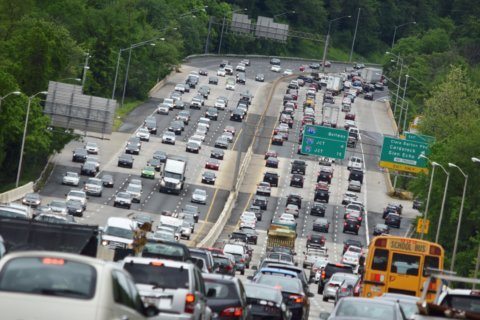Not everyone’s having turkey this Thanksgiving holiday. Some area residents in the D.C. area are dining on locally produced chicken in an effort that links farmers to food banks.
Jacob Gilley is with the American Farmland Trust. His organization partnered with the Mid-Atlantic Food Resilience Access Coalition to provide hundreds of chickens to food banks and nonprofits in Prince George’s County, Maryland.
Gilley said three different poultry producers were able to supply those in need with “really nutritious, high-quality poultry for this holiday season.”
The arrangement is a win-win situation, he said, with producers being paid by nonprofits, which get grants to make the purchases. Then, the food is provided to people who might otherwise go hungry.
Among the recipients is the River Jordan Project in Accokeek, Maryland. Rev. Tierney Screen, co-founder of the River Jordan Project, said her organization received and distributed 200 chickens within the past week. A number of the people who the River Jordan Project helps are older, Screen said, adding that the smaller birds are easier to prepare, serve and store than a larger turkey.
Screen also cited safety as an issue in food preparation.
“As we get older, our strength kind of wanes a little bit,” she said, so handling a heavy bird in a large roasting pan could be a hazard for some.
The chicken also fits in a regular household freezer, while turkey takes up a lot of space. Also, many older recipients might not be able to use it all before the leftovers could spoil.
“So chickens are perfect!” Screen said.
Another part of the River Jordan Project’s outreach includes information and classes on creating healthy meals and active living.
“I talk to our seniors about food being medicine,” Screen said, and having access to the locally raised food is part of that effort.
Gilley said pasture-raised chickens that are raised locally don’t have added water or brine.
“So when you cook that chicken, it just retains a lot of the moisture” that’s naturally in the bird, Gilley said. “In our household, we’ll bake a chicken. And then, we’ll take those leftovers and maybe we’ll make enchiladas or … you can make soups … and kind of expand your cooking horizons.”
This Thanksgiving holiday, Gilley said he’s thankful to the Mid-Atlantic Food Resilience Access Coalition and all the nonprofits that decided to distribute chickens this year.
Gilley said handling fresh foods versus non-perishables can be tricky for food banks and other organizations, but at the end of the day, “it’s creating longer and better change.”








